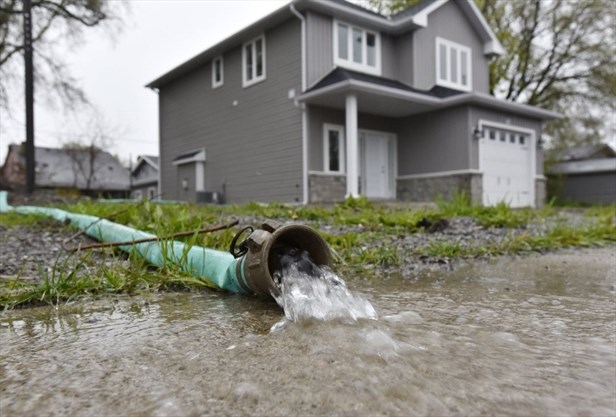Image source: The Hamilton Spectator
No one can argue about the importance of a regular basement inspection. A wet basement can cause severe damage if left unresolved; and worse, the whole house may even collapse if the situation becomes severe. Basement flooding may be caused by unsuitable location of the home, poor floor and wall sealing, blocked gutter system, poorly constructed drainage system, and debris in the eaves troughs. Here are some of the signs that are most commonly associated with basement flooding:
- Cracks on the walls or in the floors
- Mold growth
- Signs of moisture or condensation in the basement even if the weather is dry
A property inspector emphasizes that no basement is free from water; there is always the possibility of a flood or minor seepage, which happens when the floor gets some little puddles of water, usually between 1/4- and 1/2-inch deep. The following tips may go a long way in correcting and/or preventing basement flooding:
- Install a check valve between your house’s drainage system and the municipal water system; this method, which may be expensive, is usually referred to as a “flood control” system.
- Install a stand pipe only if it is just a minor backflow.
- Consider using sump pumps, which can remove water that has already accumulated in the basement.
- Check for debris that may be blocking your roof’s gutters and downspouts.
- In the absence of downspouts, use drain pipes to redirect the rain water to the back or front yards.
- Invest in a quality de-humidifier for your basement, one that has an optional drain hose.
- For full or partially finished basements with carpet or hardwood on the floor, it is ideal to have a plastic vapor barrier between the carpet pad and the concrete slab floor.
- Seal all cracks and install drywall walls.
Do not wait for an emergency before you take action. Seek the advice of a professional now and have your basement checked. You may also consider getting an insurance for further protection especially if your property is located along the gulf coast. Whether it is being used as a garage or a maintenance room, it still needs the same level of care you are giving to the other parts of the house.


Comments are closed.